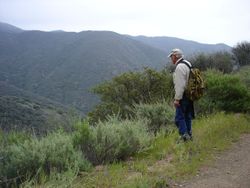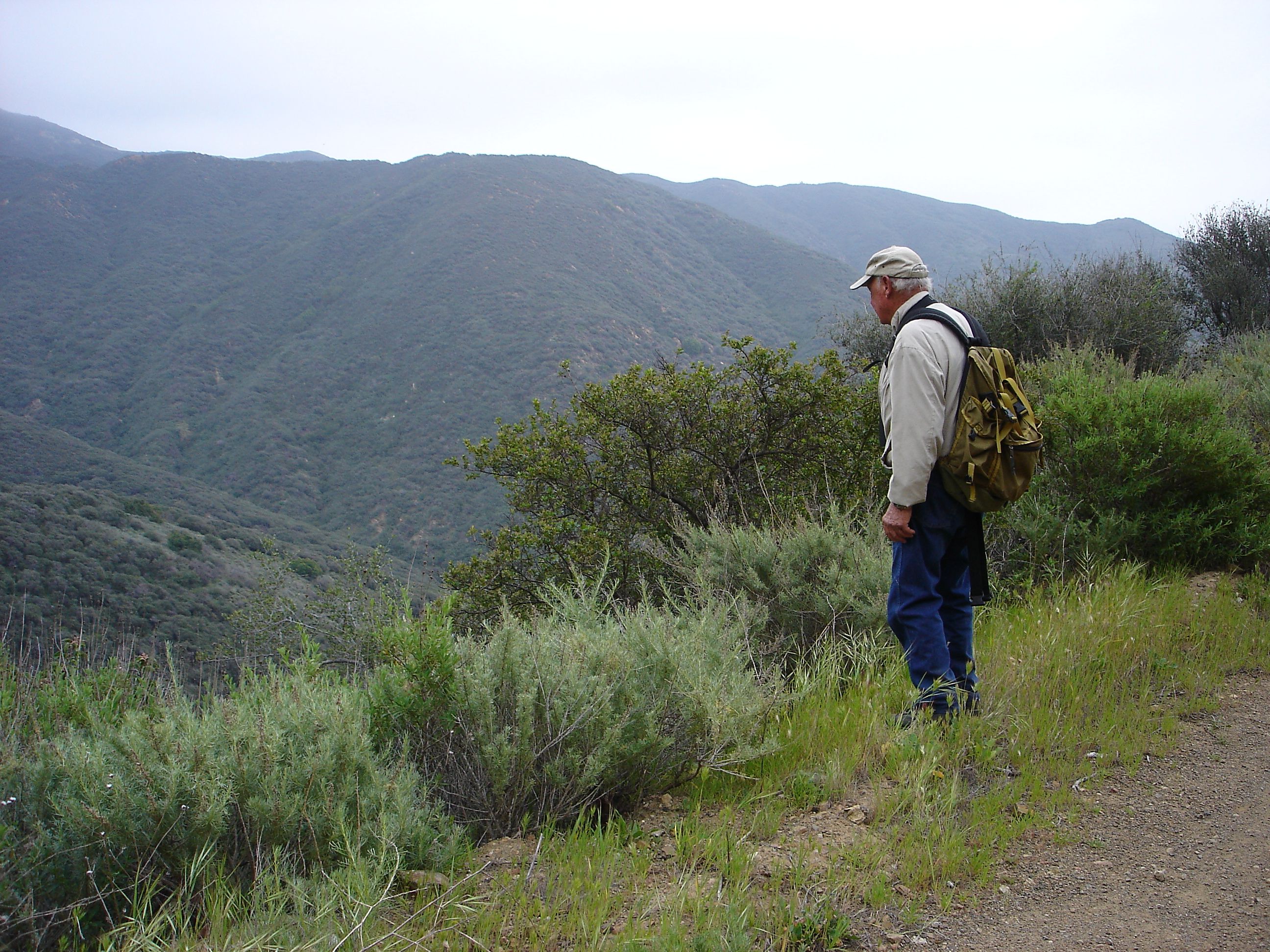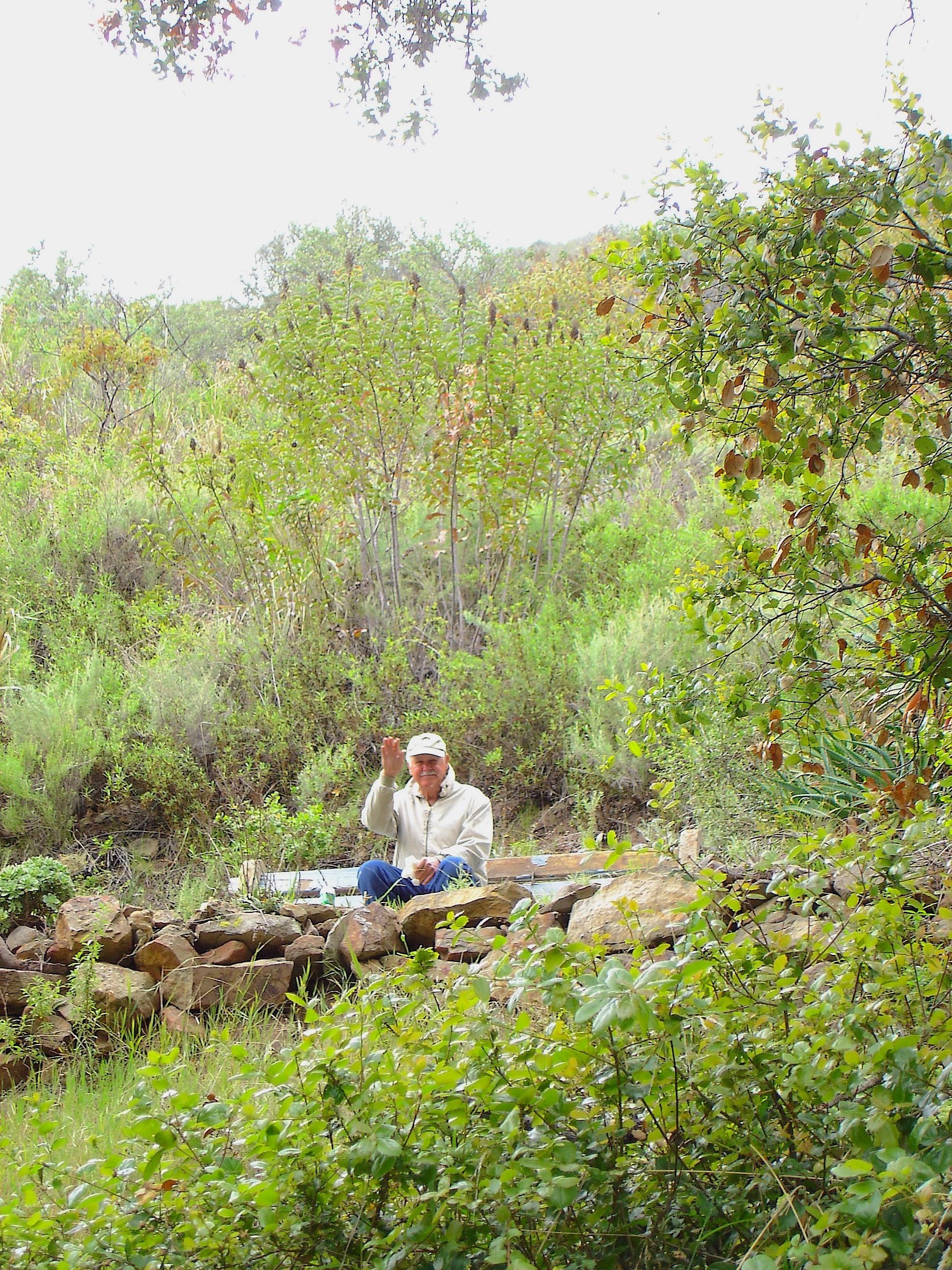Alvin Mills Kincaid was born on May 6, 1926 in Santa Monica, and passed away on February 2, 2013 in Waikoloa, Hawaii at the age of 86. He was the last of his generation to have been raised on the Kincaid Ranch in Malibu. The Kincaid's and the Mills family are both descended from a long line of pioneers reaching back to the arrival of the Mayflower at Plymouth Rock in 1620. Both families made their way to California following the gold rush of 1848. "Al" Kincaid's grandfather Eugenio, having sailed to and crossed the Panama Isthmus in 1857 to try his hand at gold mining, became a construction foreman helping to build the first Transcontinental Telegraph in 1861 which cemented the West Coast to the Union cause at the outbreak of the Civil War. Immediately thereafter he became the first manager of the Western Union office at the Sacramento telegraph terminus. A wild burr always under the Kincaid saddle, it was not long before Eugenio left for the Nevada silver mines and eventually homesteaded a ranch in the Monitor Valley in the north of that state. In 1875, he brought his growing family south to the then budding metropolis of El Pueblo de la Reina de Los Angeles, total population 5,500 and built a livery stable and general store on the "outskirts of the city" after acquiring a 15 acre parcel at the intersection of what today is Pico Boulevard and Figueroa Avenue and the site of the Los Angeles Convention Center. One year later on Sept. 5, 1876, the Southern Pacific Railroad linking Los Angeles for the first time to a transcontinental railway was completed and passed directly in front of Eugenio's store, launching his career as an astute developer of downtown. Eugenio's eldest son, Freeman Kincaid was born on the Nevada ranch in 1873but grew up in the burgeoning new California mecca of L.A. He graduated in the class of 1894 at the University of Berkeley, and, as an educator and government employee, worked in the city of Los Angeles. However, the same adventurous itch that struck his father infected Freeman, and in 1905 he filed a patent on his first 160 acres of federal land buried deep in the Santa Monica Mountains. The only problem was access. There was none. To get to his chosen land he had to take a stagecoach to the San Fernando Valley and then ride horseback from the backside of the trail-less mountains up to Triunfo Pass, crossing the crest of the range and thence down to Trancas Canyon along the coast. There on a ridge overlooking the Pacific Ocean, he planted his flag and made his stand. It took a few years and more than 10 miles of road-building by leading a team of horses and a crude fresno to make his claim. The first cabin blew down in a ferocious Santa Ana windstorm in 1915. The second house, a single-story, large clap-board built in a "U" shape around a courtyard became the Kincaid Ranch headquarters, birthing three children, and husbanding manifold livestock. Alvin was born into this, idyil, along with his younger sister Evelyn, and brother Freeman, Jr., and with half-brother Joe Valerie Kincaid. The elder Freeman eventually brought in his six brothers and sisters and the extended family patented a domain, eventually exceeding 5,000 acres and covering most of the upper watershed of Encinal and Trancas Canyons. It was bounded on the south by the Spanish land grant, Rancho Topanga Malibu Sequit, purchased in 1894 by Frederick Rindge. The ranch house burned down in a 1935 range fire but that didn't stop the family. While living in the bottom of Trancas Canyon in a line shack lent by May Rindge, the widow of Frederick Rindge, they completed a small house on the same site, which still stands today at the terminus of Trancas Canyon Road. The Kincaid family raised cattle and horses, kept pigs, chickens, and geese, and raised bees for honey. Alvin learned to hunt early and became an expert marksman. He had a lifelong affection for his guns and hunting and always loaded his own ammunition. He was an accomplished horseman at a very young age, though once, being chastened by his older half-brother Joe, walked away from his mount and never rode again. When the elder Freeman Kincaid died in 1937 at the height of the depression, he left his wife Grace Kincaid with three young children and no source of income. Gradually acreage was sold or bartered away, piece by piece. One particularly beautiful 40-acre parcel in the bottom of Trancas Canyon was traded in 1938 for a primitive washing machine and refrigerator. When World War II broke out, Alvin was 15 years old. On his sixteenth birthday in the year of 1942, following in the footsteps of his brother Freeman, Jr., Alvin signed up for the Merchant Marine and soon shipped out from Long Beach Harbor. He spent two years circumnavigating the world, making stops at exotic ports like Calcutta, Hobart/Tasmania, Zanzibar, Santiago, Mindanao, and Recife, supplying the Allied juggernaut. On his eighteenth birthday, finally old enough to enlist, he joined the Army. In the spring of 1945, he was shipped to Europe just in time for the German surrender, whereupon he became a member of the United States Honor Guard at the Supreme Headquarters Allied Expeditionary Force (SHAEF) under the command of General Dwight Eisenhower. He was stationed there in Frankfurt am Main, Germany for the next two years where he met his soon-to-be wife, Marion Winterstein, the daughter of a well-known business family, and the mother of his only two children. In early 1948, the newlyweds arrived in California and set up house at the ranch. He was only 22 and had already lived a life of adventure bridging a rugged pioneer upbringing and a brave new world. Though he had left Santa Monica High School in the eleventh grade to join the war effort, he was presented a high school diploma upon his return to the States. Alvin soon went to work as a construction laborer, became a journeyman carpenter, a dedicated union man and began a lifelong passion of building with wood, working on the houses of the rich and famous from Malibu to Beverly Hills. At the advanced age of 40, in order to overcome a consuming fear of water and the inability to swim, he took deep sea diving classes, brass helmets with rubber suits and all, until he finally became a certified diver. Thereafter he never dove again, but he had conquered his terror of the sea. Longing to return to the South Pacific and the youthful dreams of romantic isles, he launched his newest passion for sailing. Over the next 20 years, he owned and rebuilt two oceangoing vessels and lived off-and-on in nearly every port in southern California. Whether it was at sea, or among high mountains or endless desert, Alvin loved nothing more than to grab his binoculars and scan the horizon. He was always on the lookout for adventure, and perhaps another idyll. He never found it. Alvin's other consuming passion was reading and more reading, having amassed a personal library of nearly a thousand books. Everywhere he went, he had a book in hand. There were books on sailing adventures, on history, philosophy, or politics. He was a voracious bibliophile with a prodigious memory. Alvin could recite perfectly poetry memorized from childhood, as well as accurately recall the names of people and places and dates. He was a man of extraordinary intellect. He was one of a kind. He will be sorely missed. Alvin Kincaid is survived by his son Clive Alvin Kincaid-who submitted this memorial, of Pagosa Springs, Colorado, and daughter-in-law Chris, and grandson Nick Kincaid. He is also survived by his daughter Carla Korda of Camarillo, California; his nephew Eric Kincaid Olsen of Kettle Falls, Washington, as well as Eric's sons Jared and Ricky, his grand nephews; as well as his 20-year partner, Paula Kamiya of Waikoloa, Hawaii. Alvin Mills Kincaid will be buried in the Kincaid Family plot alongside his grandparents Eugenio Hough Kincaid and Charity Sophronia Mills, and his parents Freeman Mills Kincaid and Theresa Grace Valerie, among his aunts and uncles and siblings. Funeral services will be held at the Inglewood Park Cemetery in the Grace Chapel at 11 a.m. on Friday, Feb. 15.
Malibu Surfside News, February 14, 2013
Alvin Mills Kincaid was born on May 6, 1926 in Santa Monica, and passed away on February 2, 2013 in Waikoloa, Hawaii at the age of 86. He was the last of his generation to have been raised on the Kincaid Ranch in Malibu. The Kincaid's and the Mills family are both descended from a long line of pioneers reaching back to the arrival of the Mayflower at Plymouth Rock in 1620. Both families made their way to California following the gold rush of 1848. "Al" Kincaid's grandfather Eugenio, having sailed to and crossed the Panama Isthmus in 1857 to try his hand at gold mining, became a construction foreman helping to build the first Transcontinental Telegraph in 1861 which cemented the West Coast to the Union cause at the outbreak of the Civil War. Immediately thereafter he became the first manager of the Western Union office at the Sacramento telegraph terminus. A wild burr always under the Kincaid saddle, it was not long before Eugenio left for the Nevada silver mines and eventually homesteaded a ranch in the Monitor Valley in the north of that state. In 1875, he brought his growing family south to the then budding metropolis of El Pueblo de la Reina de Los Angeles, total population 5,500 and built a livery stable and general store on the "outskirts of the city" after acquiring a 15 acre parcel at the intersection of what today is Pico Boulevard and Figueroa Avenue and the site of the Los Angeles Convention Center. One year later on Sept. 5, 1876, the Southern Pacific Railroad linking Los Angeles for the first time to a transcontinental railway was completed and passed directly in front of Eugenio's store, launching his career as an astute developer of downtown. Eugenio's eldest son, Freeman Kincaid was born on the Nevada ranch in 1873but grew up in the burgeoning new California mecca of L.A. He graduated in the class of 1894 at the University of Berkeley, and, as an educator and government employee, worked in the city of Los Angeles. However, the same adventurous itch that struck his father infected Freeman, and in 1905 he filed a patent on his first 160 acres of federal land buried deep in the Santa Monica Mountains. The only problem was access. There was none. To get to his chosen land he had to take a stagecoach to the San Fernando Valley and then ride horseback from the backside of the trail-less mountains up to Triunfo Pass, crossing the crest of the range and thence down to Trancas Canyon along the coast. There on a ridge overlooking the Pacific Ocean, he planted his flag and made his stand. It took a few years and more than 10 miles of road-building by leading a team of horses and a crude fresno to make his claim. The first cabin blew down in a ferocious Santa Ana windstorm in 1915. The second house, a single-story, large clap-board built in a "U" shape around a courtyard became the Kincaid Ranch headquarters, birthing three children, and husbanding manifold livestock. Alvin was born into this, idyil, along with his younger sister Evelyn, and brother Freeman, Jr., and with half-brother Joe Valerie Kincaid. The elder Freeman eventually brought in his six brothers and sisters and the extended family patented a domain, eventually exceeding 5,000 acres and covering most of the upper watershed of Encinal and Trancas Canyons. It was bounded on the south by the Spanish land grant, Rancho Topanga Malibu Sequit, purchased in 1894 by Frederick Rindge. The ranch house burned down in a 1935 range fire but that didn't stop the family. While living in the bottom of Trancas Canyon in a line shack lent by May Rindge, the widow of Frederick Rindge, they completed a small house on the same site, which still stands today at the terminus of Trancas Canyon Road. The Kincaid family raised cattle and horses, kept pigs, chickens, and geese, and raised bees for honey. Alvin learned to hunt early and became an expert marksman. He had a lifelong affection for his guns and hunting and always loaded his own ammunition. He was an accomplished horseman at a very young age, though once, being chastened by his older half-brother Joe, walked away from his mount and never rode again. When the elder Freeman Kincaid died in 1937 at the height of the depression, he left his wife Grace Kincaid with three young children and no source of income. Gradually acreage was sold or bartered away, piece by piece. One particularly beautiful 40-acre parcel in the bottom of Trancas Canyon was traded in 1938 for a primitive washing machine and refrigerator. When World War II broke out, Alvin was 15 years old. On his sixteenth birthday in the year of 1942, following in the footsteps of his brother Freeman, Jr., Alvin signed up for the Merchant Marine and soon shipped out from Long Beach Harbor. He spent two years circumnavigating the world, making stops at exotic ports like Calcutta, Hobart/Tasmania, Zanzibar, Santiago, Mindanao, and Recife, supplying the Allied juggernaut. On his eighteenth birthday, finally old enough to enlist, he joined the Army. In the spring of 1945, he was shipped to Europe just in time for the German surrender, whereupon he became a member of the United States Honor Guard at the Supreme Headquarters Allied Expeditionary Force (SHAEF) under the command of General Dwight Eisenhower. He was stationed there in Frankfurt am Main, Germany for the next two years where he met his soon-to-be wife, Marion Winterstein, the daughter of a well-known business family, and the mother of his only two children. In early 1948, the newlyweds arrived in California and set up house at the ranch. He was only 22 and had already lived a life of adventure bridging a rugged pioneer upbringing and a brave new world. Though he had left Santa Monica High School in the eleventh grade to join the war effort, he was presented a high school diploma upon his return to the States. Alvin soon went to work as a construction laborer, became a journeyman carpenter, a dedicated union man and began a lifelong passion of building with wood, working on the houses of the rich and famous from Malibu to Beverly Hills. At the advanced age of 40, in order to overcome a consuming fear of water and the inability to swim, he took deep sea diving classes, brass helmets with rubber suits and all, until he finally became a certified diver. Thereafter he never dove again, but he had conquered his terror of the sea. Longing to return to the South Pacific and the youthful dreams of romantic isles, he launched his newest passion for sailing. Over the next 20 years, he owned and rebuilt two oceangoing vessels and lived off-and-on in nearly every port in southern California. Whether it was at sea, or among high mountains or endless desert, Alvin loved nothing more than to grab his binoculars and scan the horizon. He was always on the lookout for adventure, and perhaps another idyll. He never found it. Alvin's other consuming passion was reading and more reading, having amassed a personal library of nearly a thousand books. Everywhere he went, he had a book in hand. There were books on sailing adventures, on history, philosophy, or politics. He was a voracious bibliophile with a prodigious memory. Alvin could recite perfectly poetry memorized from childhood, as well as accurately recall the names of people and places and dates. He was a man of extraordinary intellect. He was one of a kind. He will be sorely missed. Alvin Kincaid is survived by his son Clive Alvin Kincaid-who submitted this memorial, of Pagosa Springs, Colorado, and daughter-in-law Chris, and grandson Nick Kincaid. He is also survived by his daughter Carla Korda of Camarillo, California; his nephew Eric Kincaid Olsen of Kettle Falls, Washington, as well as Eric's sons Jared and Ricky, his grand nephews; as well as his 20-year partner, Paula Kamiya of Waikoloa, Hawaii. Alvin Mills Kincaid will be buried in the Kincaid Family plot alongside his grandparents Eugenio Hough Kincaid and Charity Sophronia Mills, and his parents Freeman Mills Kincaid and Theresa Grace Valerie, among his aunts and uncles and siblings. Funeral services will be held at the Inglewood Park Cemetery in the Grace Chapel at 11 a.m. on Friday, Feb. 15.
Malibu Surfside News, February 14, 2013
Family Members
Sponsored by Ancestry
Advertisement
Explore more
Sponsored by Ancestry
Advertisement









